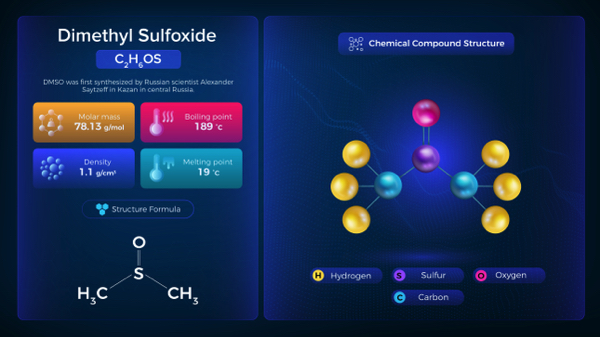 Parler
Parler Gab
Gab
- Vitamin D significantly reduces the risk of colon cancer, according to a comprehensive Hungarian study.
- Urban populations, especially in Europe, are at higher risk of vitamin D deficiency due to limited sunlight exposure.
- Vitamin D supplements, available for as little as 2p per pill, can help bridge the gap and provide anti-cancer benefits.
- Vitamin D has been studied for decades, and many other studies link vitamin D intake and synthesis with lower incidence of colon cancer.
The Hungarian study: a beacon of hope
A groundbreaking study conducted by Hungarian researchers and published in the journal Nutrients has provided compelling evidence that vitamin D can significantly reduce the risk of colon cancer. The study, led by Professor János Tamás Varga from Semmelweis University, analyzed data from 50 previous studies involving over 1.3 million patients. The findings are nothing short of remarkable: individuals with adequate vitamin D intake were between 25% to 58% less likely to develop colon cancer. Professor Varga emphasized the critical role of vitamin D in both the prevention and treatment of colorectal cancer. "Vitamin D plays a critical role in the prevention and treatment of colorectal cancer," he stated. "The results suggest that the effect of vitamin D may depend on factors such as the dosage, the individual condition of the patients, and the duration of treatment." The study also found that taking a vitamin D supplement was specifically linked to a 4% reduced risk of colon cancer for every 2.5 micrograms consumed. This is particularly significant given that the NHS recommends every adult and child over the age of one get 10 micrograms of vitamin D each day. For those who may not get enough sunlight, especially during the darker winter months, supplements are a practical and affordable solution. High-street pharmacies offer vitamin D supplements for as little as 2p per pill, making it accessible to a wide range of people.The urban dilemma: a hidden epidemic
While the benefits of vitamin D are clear, the challenge lies in ensuring that people get enough of it. Urban populations, particularly in Europe, are at a higher risk of vitamin D deficiency due to factors like air pollution and dense infrastructure, which limit sunlight exposure. According to the study, approximately 40% of Europeans are considered vitamin D deficient, with 13% classified as severely deficient. British data further reveals that as many as two in five adults may be vitamin D deficient during the winter months when daylight hours are scarce. The implications of this deficiency are far-reaching. Vitamin D is crucial for the absorption of calcium and phosphate, which are vital for maintaining healthy bones, teeth, nerves, and muscles. It also plays a key role in keeping the immune system functioning correctly. A lack of vitamin D can lead to serious health issues, including rickets, a condition that causes bone pain, weakness, and deformities. Moreover, the study highlights the potential link between vitamin D deficiency and the mysterious rise in colon cancer among young adults, with diagnoses having shot up by 80% in 30 years.The science behind the sunshine vitamin
The mechanisms by which vitamin D exerts its protective effects against colon cancer are multifaceted. Vitamin D is known to promote apoptosis, the programmed cell death that helps eliminate damaged or abnormal cells, thereby preventing the formation of tumors. It also modulates cell growth and differentiation, which can help prevent the uncontrolled cell proliferation that characterizes cancer. Additionally, vitamin D enhances immune function, which is crucial for detecting and destroying cancer cells. One of the most compelling pieces of evidence comes from a 19-year prospective study conducted in Chicago, which specifically examined the impact of vitamin D and calcium intake on colon cancer risk. The study, titled "Dietary Calcium and Vitamin D Intake and Risk of Colorectal Cancer: A Prospective Cohort Study of Men", followed a cohort of men over a 19-year period. The results were striking: men who consumed 3.75 µg of vitamin D daily experienced a 50% reduction in colon cancer risk, while those who consumed 1200 mg of calcium daily saw a 75% reduction in risk. The study also noted that higher circulating levels of 25(OH)D were observed in the control group compared to the cases, further supporting the protective role of vitamin D. Three other studies reinforce the inverse association between vitamin D intake and colon cancer risk.- A meta-analysis published in the Journal of Clinical Oncology titled Vitamin D and Risk of Colorectal Cancer: A Meta-Analysis of Prospective Studies finds positive results for vitamin D. This meta-analysis pooled data from multiple large case-control and cohort studies, revealing a consistent trend of reduced colon cancer risk with higher vitamin D intake. The analysis found that individuals with the highest levels of dietary vitamin D had a risk reduction ranging from 0.5 to 0.9 compared to those with the lowest intake levels. This indicates a clear and substantial protective effect of vitamin D against colon cancer.
- Vitamin D Intake and the Risk of Colorectal Cancer: An Updated Meta-Analysis and Systematic Review of Case-Control and Prospective Cohort Studies concluded that both dietary and supplemental intake of vitamin D are associated with a reduced risk of colon cancer incidence.
- In the study, Association Between Vitamin D and Risk of Colorectal Cancer: A Systematic Review of Prospective Studies, vitamin D intake and blood 25(OH)D levels were inversely associated with the risk of colorectal cancer.
Energy medicine has many applications: REIKI can improve cancer care
By Lance D Johnson // Share
Seasonal flavors: Adding Moringa Powder to festive drinks and snacks
By HRS Editors // Share
Muscle protein holds memory of exercise: Study reveals two-month “muscle memory” trace
By Willow Tohi // Share
A comprehensive look at DMSO’s potential in cancer treatment
By Ramon Tomey // Share
Dill: An ancient superfood with modern healing powers
By Ava Grace // Share
Governments continue to obscure COVID-19 vaccine data amid rising concerns over excess deaths
By patricklewis // Share
Tech giant Microsoft backs EXTINCTION with its support of carbon capture programs
By ramontomeydw // Share
Germany to resume arms exports to Israel despite repeated ceasefire violations
By isabelle // Share










